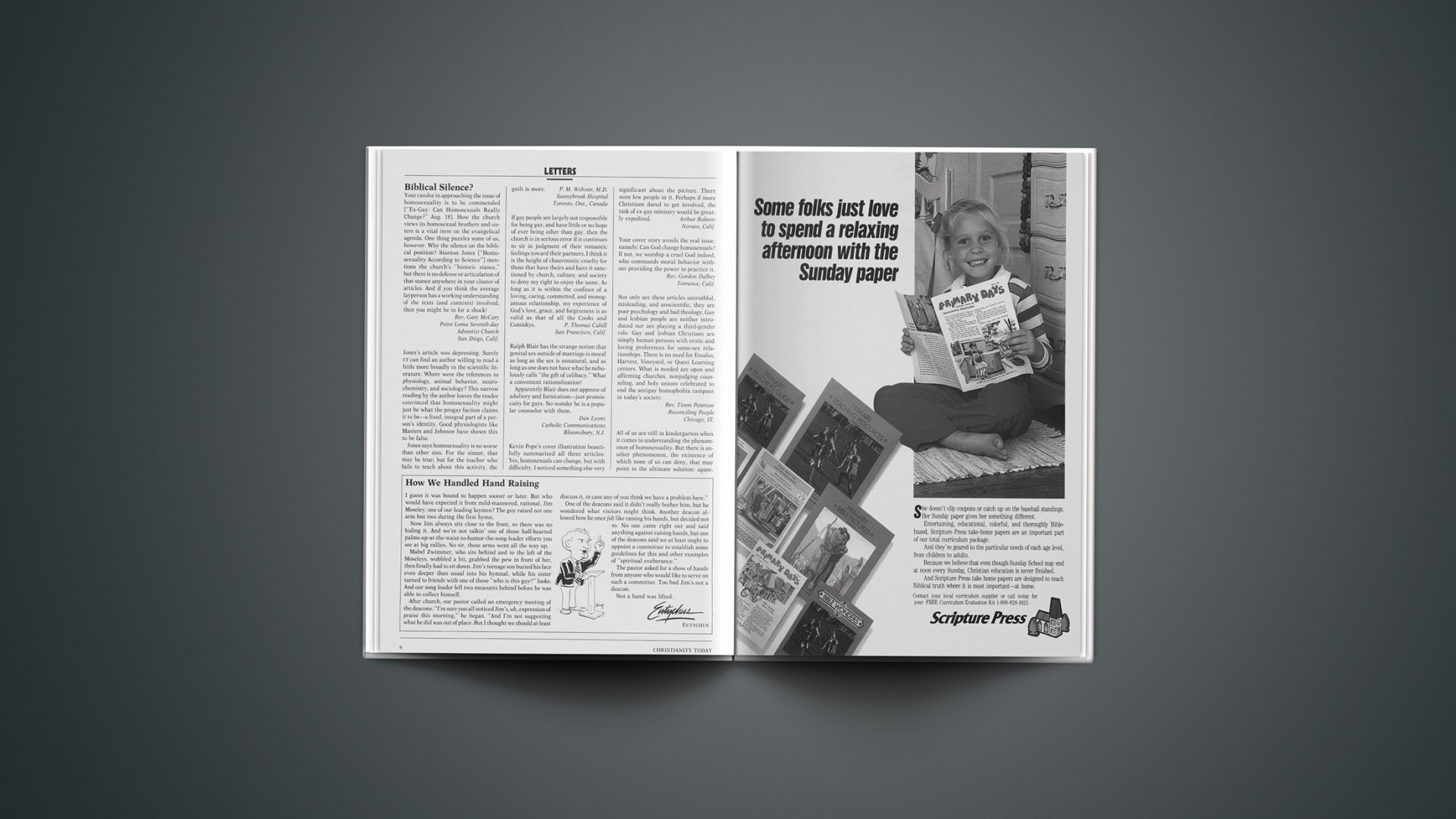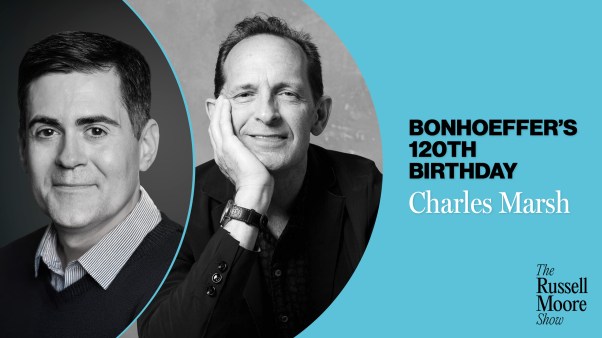On the day the Supreme Court announced its decision in the Webster case, jubilation reigned among American evangelicals. It appeared to them that the Court was beginning to dismantle the structure of legalized abortion, that it would be only a matter of time until Roe v. Wade would be overturned and the slaughter of the unborn halted.
But perhaps evangelical activists cheered too quickly. Polls continue to show that only about half the populace approves of a limited ban on abortions, and many fewer support total abolition. In other words, the prolife movement has failed to accomplish the most important thing needed for its success: persuading the great majority of the American people that abortion is not only a matter of morality (considered by most to be a private realm), but something that must be stamped out for the good of society (something we agree can harm us all).
The activists try to shore up the seemingly soft social foundation of their arguments by appealing to history. They assiduously identify their cause with the nineteenth-century campaign to abolish slavery and the more recent civil-rights movement. They claim continuity with these heroic efforts, portraying their crusade as yet one more mighty work of God in history.
I would suggest instead that they scrutinize the campaign against alcoholic beverages that finally achieved National Prohibition in 1920. If any historic parallel can provide lessons for strategy, it is this.
First, temperance advocates promoted their cause as a moral crusade. They did not focus sufficiently on the social implications of the unrestrained use of beverage alcohol and on developing convincing arguments that it should be banned for the good of the nation.
Second, the temperance movement was simplistic in approach. It assumed that if saloons were closed and distilleries and breweries torn down, happiness would reign. Alcohol was painted in stark, black-and-white terms, and preachers portrayed its users (of any amount) as on the road to hell.
The simplistic answers and sloganizing of Prohibition unfortunately find a counterpart in prolife efforts, where well-articulated responses to the problems of when life begins or questions about the emotional impact of abortion on women too often are lacking.
Third, Prohibition was achieved through pressure tactics that focused on alcohol as a single issue. Similarly, the prolife movement today does not want to deal with “distractions” such as nuclear war, environmental destruction, racism, poverty, and tobacco usage. This only gives fuel to critics who accuse evangelicals of holding that “the right to life ends at birth.”
Finally, Prohibition was a middle-class effort. It shut down the saloons (the “poor men’s country clubs”) so that the newer immigrants and working classes would become sober and more industrious, but did little to keep the well-to-do from imbibing.
So with abortion: Those with means too often simply send their daughters, wives, and girl friends with unwanted pregnancies to other states or countries to obtain safe abortions, while the poor will resort to back-alley abortionists or have babies they cannot support.
Although Prohibition did contribute to a sharp drop in liquor consumption, it was accompanied by a wave of lawlessness that eroded popular respect for the law. Would new, tougher abortion legislation have the same result? Opponents of abortion will have to provide convincing arguments that abortion is a social evil, promote programs that will deter unwanted pregnancies, and assist mothers in caring for their unplanned children. Otherwise, they may lose the war. The eventual repeal of Prohibition reminds us that the staying power of a national consensus is vital.
Richard V. Pierard is professor of history at Indiana State University, Terre Haute, Indiana.
Speaking Out offers responsible Christians a forum for their views on contemporary issues. It does not necessarily reflect the opinions of CHRISTIANITY TODAY.










